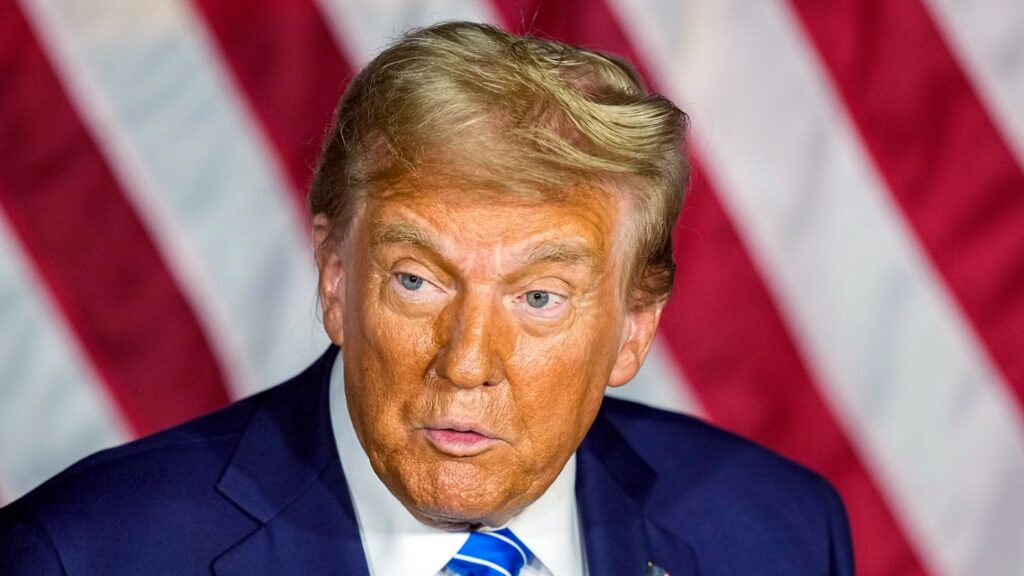Donald J. Trump’s return to the White House has been nothing short of a political earthquake. While his critics label the first 100 days of his second term chaotic and divisive, a closer look reveals a presidency that has hit the ground running, aggressively implementing its agenda, reshaping federal policy, and redefining America’s place on the world stage.
Media War and the Narrative Divide
From day one, President Trump has been locked in a fierce battle with what he calls the “liberal-dominated media establishment.” Outlets such as The Washington Post and The New York Times, still reeling from Kamala Harris’s defeat in the 2024 election, have painted the Trump administration as disordered and incoherent. But on the ground in Washington, many observers say a different story is unfolding — one of rapid action and political determination. However, his combative stance on media bias has reignited concerns over press freedom, yet it has also solidified his support among voters tired of what they see as elite-driven narratives.
Securing the Border, Reasserting Sovereignty
One of Trump’s most lauded accomplishments among supporters has been his crackdown on illegal immigration. In just over three months, illegal crossings have plummeted to their lowest levels in decades. The end of Biden’s “catch and release” policy, the revival of the Remain in Mexico program, and the official terrorist designation of violent cartels such as MS-13 mark a hardlines but effective shift in border security.
In what is poised to be the largest deportation campaign in U.S. history, the Trump administration is asserting that border control is not only possible — but enforceable with political will.
War on Woke and Government Reform
Domestically, Trump’s unapologetic crusade against DEI (Diversity, Equity, and Inclusion) initiatives has reshaped federal hiring practices and institutional culture. DEI mandates have been banned within the federal workforce, and merit-based advancement has been reinstated. Protections for women’s sports have been reintroduced, and university campuses are under pressure to combat rising antisemitism. These actions, however, have not been well received by many minority communities in America. Academic institutions and faculty unions, such as the American Association of University Professors (AAUP), have raised concerns that the crackdown on DEI threatens academic freedom and hinders the creation of inclusive learning environments.
Perhaps the most symbolic move has been the creation of the Department of Government Efficiency (DOGE) — led by tech mogul Elon Musk. DOGE has already claimed $160 billion in taxpayer savings, slashing bureaucracy and forcing federal employees back to the office full-time — or face termination.
Read also:
British goods hit harder by Trump’s tariff policy than EU exports
Trump announced 100% tariff on foreign-made movies
Trump sparks global debate after posting AI photo in Papal attire
Global Posture: Strengthening Alliances, Redefining Priorities
On the international front, Trump has revitalized calls for NATO burden-sharing. His pressure has led to significant defense spending commitments from European allies ahead of the upcoming NATO Summit in The Hague. In a significant diplomatic win, the U.S. has signed a rare-earth minerals agreement with Ukraine, bolstering its economy and countering Russian aggression.
Vice President JD Vance, meanwhile, has signaled progress toward a major U.S.-UK trade deal, with a potential Trump state visit to Britain set for September — further affirming a revived Anglo-American partnership.
The Critics Remain Vocal
Despite these headline victories, opposition to Trump’s presidency remains fierce. His executive order restricting travel from several Muslim-majority nations reignited fierce legal and moral debates, with many labeling it a discriminatory “Muslim ban.” Protests erupted at airports, and civil rights groups launched immediate challenges.
His rollback of environmental policies, including withdrawal from the Paris Agreement and deep cuts to foreign aid, has drawn criticism from scientists, world leaders, and humanitarian groups. Detractors argue that Trump’s populist economic measures, including tax reforms and reduced regulation, disproportionately favor the wealthy and risk long-term instability.
A Nation Divided — or Realigned?
Polls suggest a nation deeply divided. While Trump enjoys enthusiastic backing from his base, overall approval ratings remain polarized. Critics cite erosion of norms, adversarial rhetoric, and institutional disruption. But supporters argue he is delivering on promises with rare conviction.
Trump’s first 100 days are proving to be a case study in contrast: to some, a revolution in government; to others, a dismantling of democratic standards. Either way, it’s clear — Donald Trump is not just occupying the Oval Office; he is redefining it.
Follow up with New Daily Prime for more updates

